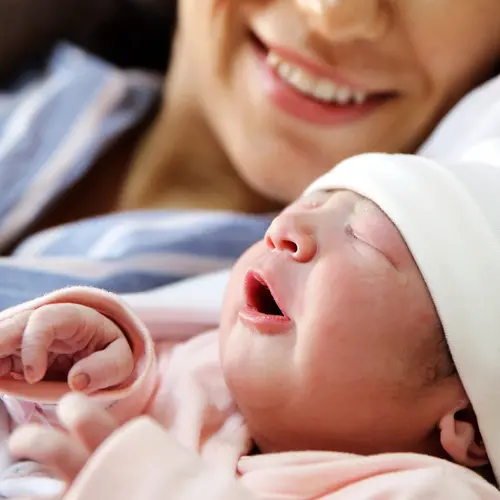Triploidy is a condition that affects 1% to 3% of pregnancies. It’s when a developing baby has an extra set of chromosomes, the thread-like structures that carry DNA.
A triploidy pregnancy usually leads to early miscarriage. If it goes to term, the baby usually doesn’t live long, and they could have severe birth defects and health problems.
What Causes Triploidy?
Triploidy is a rare problem with chromosomes, which carry the genetic information that makes each person unique.
Most people have 46 chromosomes, arranged in 23 pairs. You inherit half of your chromosomes from your mother and half from your father.
But with triploidy, another set of chromosomes forms, bringing the total number of chromosomes to 69. This can happen when:
- Two sperm fertilize an egg in the womb.
- A sperm with an extra set of chromosomes fertilizes an egg.
- An egg that has an extra set of chromosomes is fertilized by a normal sperm.
Are There Risk Factors for Triploidy?
Experts haven’t found any specific risk factors. Triploidy doesn’t run in families. It’s not linked to a mother’s or father’s age, either. Some research has found that a couple who has one pregnancy with triploidy isn’t more likely to have another.
What Are the Symptoms of Triploidy?
If a baby is born with triploidy, they could have severe or life-threatening health problems affecting their:
- Heart
- Brain development
- Kidney
- Spinal cord
- Liver and gallbladder
- Intestines
They might also look different, with signs such as:
- Eyes set far apart
- A small or missing eye
- Low nasal bridge
- Low-set, misshapen ears
- Small jaw
- Cleft lip and palate
- Third and fourth fingers fused
- Second and third toes united
- Other finger and toe deformities
- Unusual creases in hands
How Can Triploidy Affect Pregnant Women?
Triploidy usually causes a miscarriage early in pregnancy. When a triploidy pregnancy continues, the mother may be more likely to get a dangerous condition called preeclampsia. This complication can bring on high blood pressure along with signs like:
- Swelling in the hands or face (edema)
- Gaining more than 3 to 5 pounds in a week
- Headaches
- Dizziness
- Feeling irritated
- Shortness of breath
- Peeing less
- Upper belly pain
- Nausea or vomiting
- Seeing flashing lights or spots
- Feeling more sensitive to light
- Blurry vision
- Temporary blindness
Because these can also be symptoms of other conditions, it’s important to talk to your doctor if you notice any problems. If you have preeclampsia, your doctor can treat it. Without treatment, the condition can be deadly for pregnant women and their unborn babies.
How Is Triploidy Diagnosed?
A doctor might suspect triploidy during a routine imaging test called an ultrasound. Doctors use this during pregnancy to look at a baby in the womb. The ultrasound can help them spot possible signs of triploidy like unusual body parts, low amniotic fluid, and less growth than expected.
They can diagnose triploidy during pregnancy by doing one of two tests to examine the baby’s chromosomes:
- Amniocentesis. Your doctor takes amniotic fluid from your womb using a needle in your belly.
- Chorionic villus sampling. Your doctor removes a small sample of your placenta using a needle in your belly or a tube through your cervix.
Both tests come with risks, including miscarriage, so talk with your doctor about them.
A doctor can also diagnose triploidy after birth by analyzing the baby’s chromosomes through a sample of their skin.
A microarray test, which uses a blood sample to analyze chromosomes, does not help in triploidy diagnosis.
How Is Triploidy Treated?
There is no cure for the condition. When a baby is born with triploidy, the medical team treats their symptoms and gives them supportive care.
What’s the Outlook for Triploidy?
Infants born with triploidy usually die within days or months of birth.
There are a few reports of people with triploidy living to adulthood. But they had conditions like:
- Developmental delays
- Learning problems
- Seizures
- Hearing loss
Babies who live longer than expected have what doctors call mosaic triploidy. This means some of their cells have the usual 46 chromosomes, but other cells have 69.
Is Triploidy Different From Trisomy?
Though triploidy and trisomies are both chromosome problems, there’s a difference.
Triploidy is an entire extra set of chromosomes.
A trisomy happens when a normal pair of chromosomes gets a third added to it. There are many kinds of trisomies. The most common symptom is an intellectual disability. For instance, Down syndrome is known as trisomy 21.

